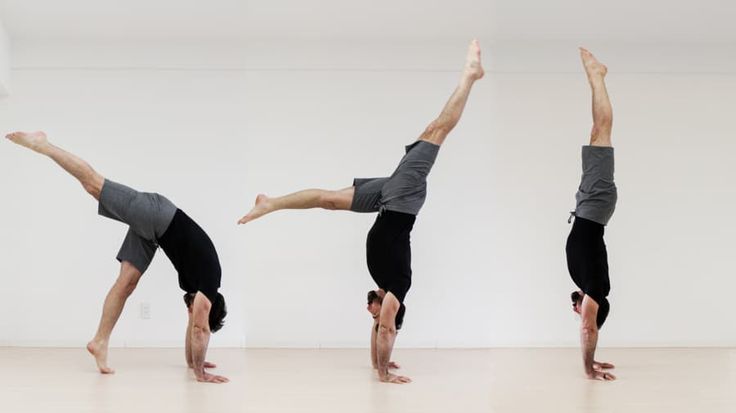
Many websites boast the many benefits of yoga for erectile disorders, which is a common issue among men. Many websites claim yoga asanas have many benefits for erectile disorder. Many even published a study that proved this method of exercise is effective in improving the sexual function of men. In this study, 65 men in Mumbai were given instructions for 12 week to practice specific yoga positions.
Uttanpadasana is a well-known pose for ED. It involves raising your legs. This stretch works the psoas muscles. They are located in the lumbar region, on the left side of the vertebral columns. It also increases the flexibility of the hips, which help in bending your knees. This poses improves blood circulation, which can lead to a better erection.

Uttanpadasana is a classic yoga posture for the pelvic muscles. Engaging the quads as well as the glutes in this pose will increase the body's testosterone. This stretch also increases the hip flexor and psoa muscles, which are both types of muscle located in the pelvic region. This is a great exercise for overcoming erectile dysfunction. With regular practice, your symptoms can be eliminated without the need for surgery or other treatment.
The peroneal muscles are the most effective yoga pose for erectile dysfunction. They help to maintain erectile rigidity. This is the best way to defeat erectile dysfunction. You must first sit down on the ground and then stretch your legs. Now, you will need to grasp the big toe of your partner with your thumb and index finger.
Different poses can improve sexual function and prevent erectile dysfunction. YouTube has beginner-friendly videos. You can increase your yoga practice by joining a partner. It's especially beneficial for those suffering from ED as it helps increase blood flow and reduce stress levels. Although the benefits of yoga for erectile disorders are well-known, further research is required to confirm their effectiveness.

It's easy to feel the benefits that yoga can bring about erectile dysfunction. It increases blood circulation, which can improve a man's sexual function and libido. In addition to this, the benefits of yoga for erectile dysfunction are not as fast-acting as most sexual medicines, and the poses must be modified to avoid compromising the lower body's functionality. They can be used to relieve erectile disorders.
The wind-relieving posture is the ideal pose to relieve erectile disfunction. This is a forward-bending seated position that strengthens the peroneal muscle. This pose will delay ejaculation, relieve stress, and stimulate reproductive organs. This pose should be done with straight spines, straight shoulders and erect shoulders. Once you master this position, you will be able to achieve an erectile experience and alleviate your symptoms.
FAQ
What is Positive Psychology & Why is It Important?
Positive psychology focuses on what makes us feel better about ourselves, such as happiness, optimism, gratitude, hope, love, kindness, compassion, forgiveness, courage, humility, curiosity, empathy, spirituality, and meaning. Positive psychology helps individuals feel happier, healthier, wiser and more fulfilled through self-improvement.
There are two kinds of positive psychology: trait and process. Trait psychology studies how people naturally behave. Positive psychology research explains how certain strategies can be used to reach specific goals.
Why is mental health important?
Mental health is vital for everyone. Mental health is essential for everyone. So, it is essential to maintain a healthy mind.
Stress can cause mental problems and even physical symptoms. This could cause health problems, such as stomach aches, backaches, headaches, and other issues. Our bodies and minds must be well looked after.
Why is mental health important for students?
Mental health is essential for students as they must be able to concentrate on school while also being able to learn well academically. You won't perform well at school if you don't feel like yourself. Students with depression tend to skip class, which can lead students to have poor grades. This may result in dropping out of highschool and eventually college.
If you're struggling with depression, you should speak to your parents or teachers. They will help you get the treatment you need.
It's important to note that not everyone who struggles with depression needs medication. Talk therapy is an effective treatment for many people. So, if you're thinking about getting help, then you should consider seeing a counselor.
How can you improve your wellbeing?
"Wellbeing" is defined as "the state that you are physically, mentally and spiritually happy." Many factors can affect our well-being. These include family, work, family health, relationships with others, education, finances and community. Your first step in improving well-being and your quality of life is to identify which areas need improvement. Then, try to change these things for the better.
Here are five easy ways to improve your wellbeing
-
Exercise – Physical activity increases endorphins that make us feel happier.
-
Sleep - More than 6 hours sleep per night can reduce stress and anxiety.
-
Nutrition - Eat healthy foods, such as fruits and veggies, to boost your mood.
-
Meditation - Regular meditation can reduce stress and anxiety.
-
Socialization: Spending quality time together with our families and friends makes us happy.
How can I improve my mental wellbeing?
It is vital to maintain mental health, especially for those who are stressed from school, work, and family. You can improve your mental health by exercising regularly, eating healthy foods, sleeping well, and spending quality time with family members. Exercise releases endorphins that make us feel happier. A healthy diet is important for our bodies to function properly. Being well rested gives you energy for the day. And finally, spending quality time with loved ones improves our relationships and reduces stress.
Statistics
- Similarly, for positive mental health, there is likely to be substantial agreement about some typical components (e.g., resilience to stress) 6, and controversy about more atypical components (e.g., career consolidation). (ncbi.nlm.nih.gov)
- Similarly, while there is some agreement about the boundaries of typical mental disorders 2, there is likely less agreement about those for positive mental health. (ncbi.nlm.nih.gov)
- It means no drinking any alcoholic beverages and no taking any drugs that aren't 100% natural.
- Appropriate nutrition and exercise are likely among the most efficacious and cost-effective positive mental health interventions. (ncbi.nlm.nih.gov)
- In any given year, an estimated 18.1% (43.6 million) of U.S. adults ages 18 years or older suffered from any mental illness, and 4.2% (9.8 million) (healthypeople.gov)
External Links
How To
How to Determine if a Mental Health Expert is needed
To help you decide if professional help is necessary, here are some warning signs. It is best to see a doctor if you spot any warning signs.
-
You feel like your control is being lost.
-
You've been having trouble sleeping.
-
Your thoughts seem to race when you try to concentrate.
-
You are thinking about suicide.
-
You feel helpless.
-
You feel that life is not worth living.
-
You are not interested in the same things that you used to love.
-
You have stopped eating.
-
You have been removed.
-
You may have used drugs or alcohol to manage stress.
-
You're starting to lose close friends and family members.
-
You have experienced other physical symptoms such as headaches, stomachaches, backaches, chest pains, etc.
In conclusion, if you notice any of these signs, then it is crucial for you to see a doctor right away.